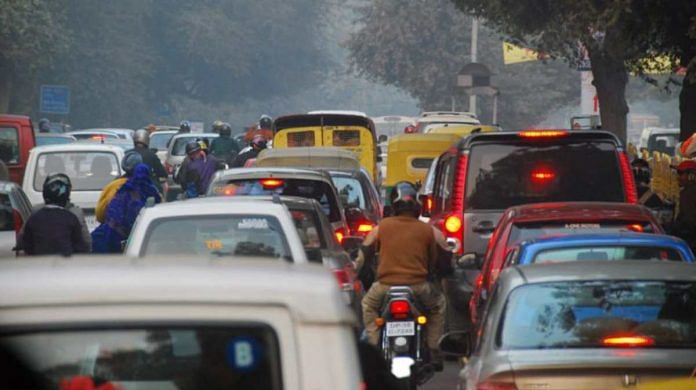American scientists have a new weapon in the war on traffic congestion – a supercomputer that could reduce fuel consumption by 20% and unlock $100 billion of productive time for millions of workers.
The project began in 2019 with a trial in Chattanooga, Tennessee, and was operated by the combined forces of the Oak Ridge National Laboratory and the National Renewable Energy Laboratory (NREL).
Quoted in the publication Scientific American, John Farrell of NREL said: “Chattanooga provided an ideal microcosm of conditions.”
Using machine learning, the NREL supercomputer, Eagle, trawled through swathes of traffic data looking for patterns. Data was pulled in from satellites, traffic cameras, weather stations and more.
It found that a series of traffic lights on a feeder road leading into central Chattanooga were causing a disproportionate number of delays that in turn were creating congestion. Switching the timings of the lights resulted in a 16% decrease in fuel use.
Traffic post-pandemic
The global pandemic reduced traffic volumes around the world, but congestion remains a problem in many major cities. Between 2019 and 2020, traffic levels across the US, and the rest of the world, dropped significantly – Los Angeles, New York and Miami saw traffic fall by 36%, 30% and 26%, respectively.
In its 2020 Traffic Index, the satellite navigation company, TomTom, found that in seven congestion hotspots, journey times are extended by more than 50% during busy periods. Moscow is now the world’s most congested city, according to TomTom.
Chattanooga, although a comparatively small city (population estimated at 182,799), is one of the most congested cities in the US. If the results of the Chattanooga trial can be replicated nationwide, NREL hopes to reduce fuel consumption across the US by a staggering 15 billion litres per year.
There will also be decreases in emissions and savings in time: according to NREL, a driver currently spends 46 hours “stuck behind the wheel”.
Farrell said that traffic, and congestion, are likely to return to pre-pandemic levels, unless steps are taken to improve things. He also said he hopes the Chattanooga project will help address wider issues. “The impact on climate change is just one of many problems we can help reduce. When you address congestion issues, you also improve safety as well.”
This article was first published at World Economic Forum.
Also read: The ‘super plant’ that can soak up pollution in our cities



